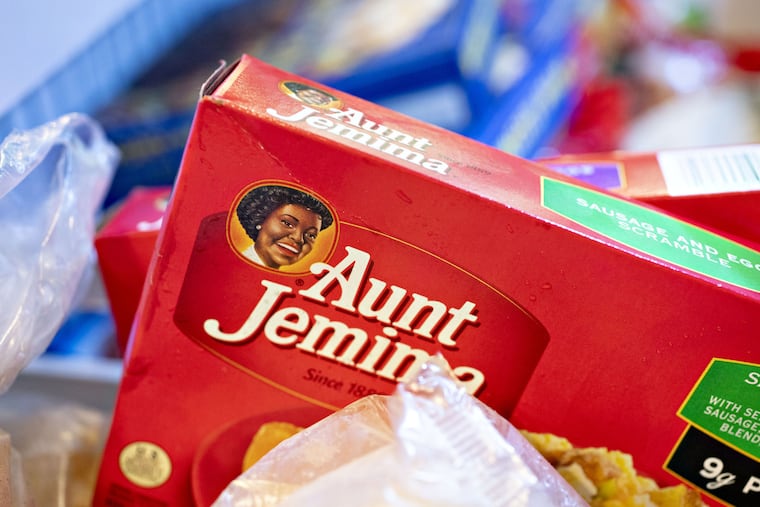Let’s say goodbye to Aunt Jemima, a retirement that is long overdue | Opinion
Aunt Jemima was nobody’s auntie. She was born from a racist ideal.

So far, 2020 is turning out to be a year America finally started to engage with the idea that Black lives do indeed matter, and the arc of justice is finally bending in the right direction.
Sparked by the horrific murder of George Floyd, an international Black Lives Matter protest movement has brought about significant changes throughout the United States. From journalists and publishers committing to capitalize the B when referring to Black people, to nationwide police reform measures, multiple sectors of society are scrambling to show that they support Black people and are committed to dismantling systemic and institutionalized racism. The protests have only just begun, so it’s too soon to tell if this movement will bring about lasting change, but it is inspiring to see how many institutions and individuals are engaging with anti-racism work.
Even the food industry examined how it could do better and canceled Aunt Jemima and Uncle Ben.
Last week, Quaker Oats, the company that owns the Aunt Jemima brand, announced it would be removing the image of the smiling Black woman from its pancake and syrup products, and changing the name. Changes will be seen toward the end of the year. Soon after that announcement, Mars Food, the company that owns Uncle Ben’s rice products, made a similar promise: Uncle Ben would be retired, and his product line renamed.
Removing these dehumanizing and exploitative images is long overdue. But some people don’t understand why a Black woman on a box of pancakes is so problematic.
Here’s why: Aunt Jemima is nobody’s auntie. She was born from a racist ideal. The Aunt Jemima character was created in 1898 by two white inventors who wanted to sell their new, premade pancake mix to people who had always cooked from scratch. They decided to add the caricature of a fat, smiling, dark-skinned, Black woman — complete with a headscarf — on the box of their product. Because who would Americans welcome into their kitchens to serve them a perfect plate of hotcakes? Why, Mammy, of course.
And though Quaker removed the headscarf in 1968 and gave her a perm and a string of pearls in 1989, the branding message remains the same. This pancake mix is good because a happy Black woman is on the box. What’s more, the very name Aunt Jemima is steeped in racist rhetoric because aunt and uncle were used as a derogatory way to keep Black people in their place. White people refused to address Blacks as Mr. or Mrs., Sir or Ma’am. They were demoted to aunt or uncle to demonstrate a blatant lack of respect.
Aunt Jemima and Uncle Ben harken back to antebellum America, when Black people knew their place was in the kitchen, serving the master and his mistress in the big house. By keeping their images and their names on the boxes of foodstuffs we see on store shelves every day, we are reinforcing those stereotypes and painful reminders of a past when Black people lived in bondage. Of course, some people who still like to remember the good old days — the same people, I suppose, who think getting married on a Southern plantation is romantic — don’t see a problem.
But it is a problem that leads to police officers killing Black Americans because they “feel threatened” by our very existence, or employers not hiring us because they just don’t believe we’ll fit into office culture, or worse, because they don’t believe we’re qualified. The negative opinions white Americans have about Black people are constantly reinforced by so many aspects of our popular culture, including these racist names and images on pancake boxes.
These images also make a lot of Black people uncomfortable. Aunt Jemima and Uncle Ben are not our heroes. They are painful reminders of what we had to endure for more than 200 years as enslaved people, pretending we were grateful to have the opportunity to make breakfast for our captors.
“Aunt Jemima was canceled… She was the picture of the American dream. She was a freed slave who went on to be the face of the pancake syrup." -- A student at Trump’s event on Tuesday pic.twitter.com/jgONhiXiza
— Peter Wade 🤦♂️ (@brooklynmutt) June 24, 2020
Yes, there are some people — both white and Black — who believe that removing Aunt Jemima from product packaging is erasing a part of Black America’s legacy. While I agree that a legacy is being lost, it is not one anyone should want to preserve. The only legacy Aunt Jemima leaves behind is one where people get to believe that Black people actually enjoyed their roles as slaves in the master’s kitchen. They didn’t.
It’s time to say goodbye to Aunt Jemima.
Lori L. Tharps is an associate professor of journalism at Temple University. She is the host of the podcast and blog, “My American Meltingpot.”